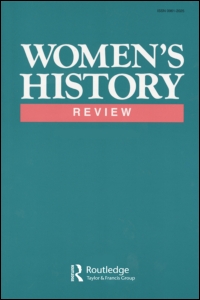
Women's History Review
Volume 3, Issue 4, Dec 1994
Pages 563-580
- DOI: 10.1080/09612029400200070
- Print ISSN: 0961-2025
- Online ISSN: 1747-583X
Bridging cross-cultural feminisms: annie besant and women's rights in England and India, 1874-1933
Loyola University
Abstract
Annie Besant was a Victorian radical whose outspoken views included advocacy of women's rights and opposition to British imperial policies. In her mid-forties she went to live in India. Contesting British attempts to Westernize Indian society, Besant found herself in the seemingly anomalous position of defending traditional Indian patriarchy and resisting efforts to reform the status of Indian women. Such conservatism brought on Besant criticism not only from Western liberals and Christian missionaries, but also from many Indian social reformers. When she gradually shifted her views and voiced her support for Indian women's rights, Indian nationalists condemned her as a British imperialist. The conflict between loyalty to national heritage and opposition to traditional patriarchy is one that colonized women have commonly experienced. By examining how an anti-imperialist British feminist responded to the question of women's reform in India, this paper offers another perspective on the complexities of this dilemma.